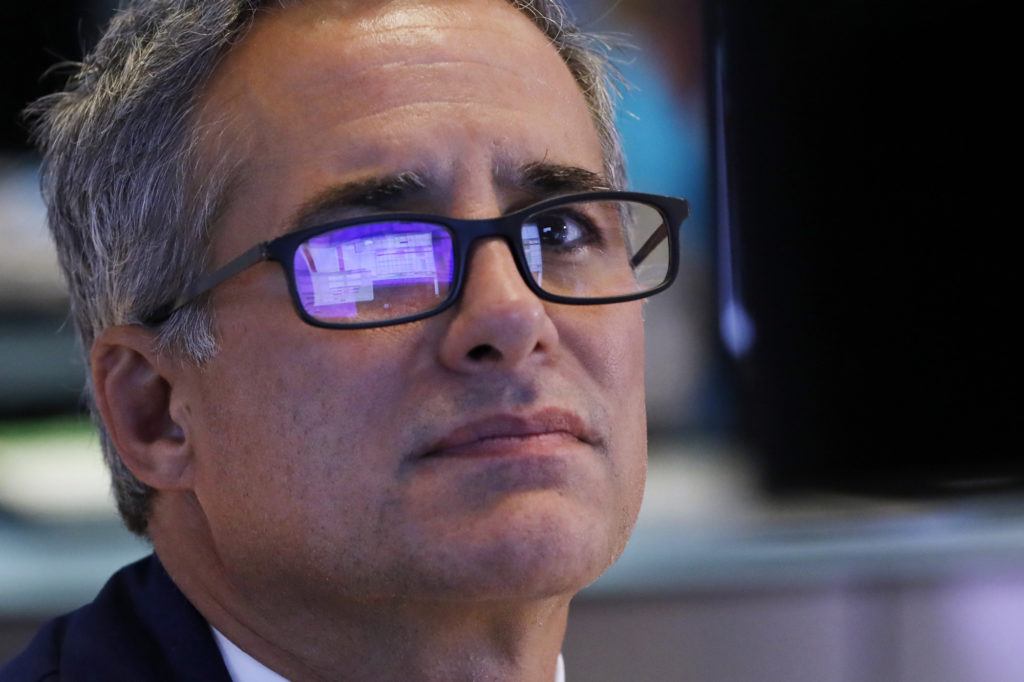Global Economy Is Barreling Towards Recession Under Trump’s Watch: Moody’s

Has the Federal Reserve paved the way for another financial disaster? | Image: AP Photo/Richard Drew, File
Finance ministers from the Group of 20 are slowly coming to terms with the possibility of a global recession in the not-too-distant future. Whether they truly understand the dangers remains an open question.
The U.S.-China trade war is getting much of the blame, as evidenced by the International Monetary Fund’s (IMF) recent downgrade to global economic growth. In reality, the global economy was in pretty bad shape before President Trump initiated the trade war with China. Now, central banks the world over are resorting to the same old tricks they used in 2008 to delay the inevitable.
Global Recession Possible Next Year: Moody’s
The chances of a 2008-style recession in the next 12 to 18 months are “uncomfortably high,” according to Mark Zandi, chief economist of Moody’s Analytics.
“I think risks are awfully high that if something doesn’t stick to script then we do have a recession,” Zandi told CNBC on Oct. 16. “I’ll say this also: Even if we don’t have a recession over the next 12-18 months, I think it’s pretty clear that we’re going to have a much weaker economy.”
The economist issued the remarks shortly after the International Monetary Fund downgraded its forecast for global economic growth yet again. Although the IMF’s outlooks are rarely reliable, they capture important trends already underway in the global marketplace.
In other words, the organization’s biannual forecasts are a decent measure of current trends and pain points in the global economy.
China was at the center of the downgrade, with the world’s second-largest economy expected to grow just 5.8% next year compared with 6.1% in 2019. Just last week, China’s third-quarter GDP report showed annual growth of just 6%, the slowest in nearly three decades.
Meanwhile, IMF prognosticators say U.S. economic growth will slow to 2.4% this year and 2.1% in 2020.
All said, global growth is expected to reach a paltry 3% in 2019 and a still-sluggish 3.4% in 2020.
President Trump to Get the Blame
An economic disaster for the United States will be a political disaster for President Trump, who inherited an even bigger financial bubble than the one before the 2008 financial crisis. Warranted or not, the current administration will get much of the blame if the U.S. economy enters recession.
That view was expressed rather succinctly by Peter Schiff, CEO of Euro Pacific Capital. In an August interview with Fox Business, Schiff said the current macro climate was paved more than a decade ago by the Federal Reserve.
Schiff said:
“You have to understand that everything the Federal Reserve has done since the 2008 financial crisis was a mistake and all they did was succeed in making all the problems that caused that crisis worse now. They covered it up by inflating an even bigger bubble than the one that popped.”
He added:
“Now we’re going to complete the economic crisis that they interrupted in 2008 except the back half is going to be much worse than the front half.”
With the Federal Reserve reverting to quantitative easing, albeit under a different name, policymakers have all but conceded that years of record bond-buying and zero interest rates have failed to stabilize the financial system. By artificially increasing demand for U.S. Treasurys, the effects of the Fed’s latest money-printing operation could be damning.
Over the past month, the Fed has printed more money than the monthly average during QE3, or the third leg of quantitative easing that began in September 2012.